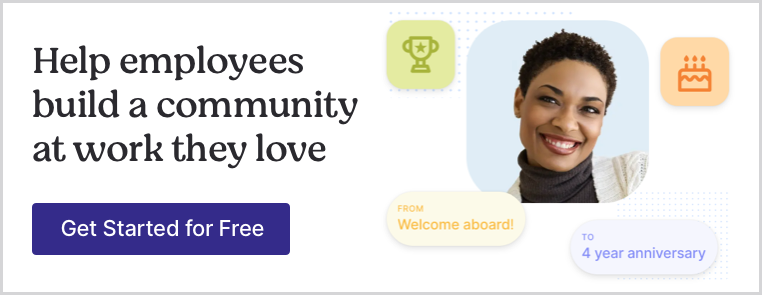In 1974, Mark Granovetter proved “it’s not what you know, but who you know” with a study that found 56% of respondents got their job through a personal connection. This way of thinking has given rise to the super-connector, or a person that excels at connecting the right person or people with the right opportunity.
Super-connectors are so influential they’re even one of the three archetypes analyzed by Malcolm Gladwell in his book The Tipping Point: How Little Things Can Make a Big Difference. Want to be a super-connector? Learn more about what that means and how to cultivate the five important characteristics of a super-connector.
What is a Super-Connector?
A super-connector is a people-person—the type of person who knows hundreds or thousands of people and remembers each of their names. Not only do they love meeting new people, but they can also recall details about their passions or personal lives with ease. They use this info to connect colleagues and friends and bring together people that might be good collaborators.
Super-connectors are far more than just networkers, though. If a super-connector makes a new acquaintance, the experience is more about how they can help that individual rather than how that person can help them. If the world is run by movers and shakers, then super-connectors are the ones that introduce them to one another.
5 Habits of Super-Connectors
Some people are natural-born super-connectors, but having an innate gift isn’t a prerequisite for becoming one. To become a super-connector, start incorporating a few of these habits into your routine.
1. Super-Connectors Remember Names
A super-connector would never dream of saying, “Sorry, I’m terrible with names!” They know how good it makes someone feel to remember their name.
There are a few strategies for helping you remember names and details:
Mnemonic devices – According to research, approximately 70% of people find it helpful to memorize information by encoding it in some way. The same research found that short, context-driven alliterations such as “Mary Davis is a marvelous designer” were the most useful coding techniques.
Write notes – New York Times bestselling author Tim Sanders suggests jotting down details about a new contact directly onto their business card before adding it to your contact list.
Repeat a name seven times – If you’re in a hurry and can’t create a mnemonic device or take notes about a new connection, repeat their name seven times in your head while visualizing their face.
To make use of this super-skill at work and encourage it in others, sign your team up for employee networking software like Pingboard! Aside from a comprehensive and delightful employee directory and interactive org chart, our Who’s Who game makes it fun to put a face to a name, on the go.
2. Super-Connectors Help People
Super-connectors do what they do to help others, not for personal gain. Ever the avid listener, they notice when a person has a problem or need, then scan their network to see who they know that could help resolve it.
3. Super-Connectors are Always Connecting
Super-connectors “never eat alone”, as writer Keith Ferrazzi describes it. They see every coffee run, lunch, and layover as a chance to connect with someone.
For introverts who need alone time to recharge, always seeking out a lunch date or company for a layover is a tall order. Instead, they might challenge themselves to meet up with an acquaintance or new connection once a day or a few times each week.
4. Super-Connectors Ask Interesting Questions
How many times have you been at a party or networking event and thought, “If one more person asks what I do for a living, I’m going to lose it.” Super-connectors know how repetitive and impersonal that question can be.
Instead, they might ask one of these questions:
What are you most passionate about?
What’s the best part of your job?
What do you do after work?
When was the last time you got so interested in something that you lost track of time?
What’s the best non-fiction book you’ve read recently?
Not only are these questions more engaging, but they also highlight something deeper about people. Super-connectors ask these questions because they’re genuinely interested, and they actually listen.
Download these 15 super-connector conversation starters for more sample questions you can use to engage people as you network.
5. Super-Connectors Use an Organization Tool
There’s only so much info that can stay stored inside your head. Having an address book or another organization system for consolidating connections is essential for avoiding snafus like telling Julian “Happy Birthday” when it’s actually Alfredo’s birthday.
There are also plenty of free or inexpensive software-based solutions, like the address book Google app or even an Excel spreadsheet.
If you want a tool that makes it easy to store and access photos, contact info, skills, and interests about each connection, take a look at Pingboard’s employee directory software.
Become a Super-Connector
Imagine being the person that everyone turns to for help, not because they think you can solve their problem, but because you know someone else who can. That’s the beauty of being a super-connector.
In the end, the secret to being a great super-connector isn’t in the cleverness of your mnemonic devices or even the organization software you use. What it really comes down to is caring about your connections and doing your best to help them.
